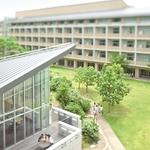Introduction to Kamakura Women's University Junior College
Overview
Kamakura Women's University Junior College (Kamakura Joshi Daigaku Tankidaigakubu, referred to as "Kamakura Women's Short") is a private junior college located in Kamakura City, Kanagawa Prefecture, Japan, established in 1948. The school aims to cultivate female talents with practical operation ability and professional skills, especially in the fields of education, childcare, home economics and art.
Campus
Kamakura Women's University Junior College is located in Kamakura City, Kanagawa Prefecture, the specific address is as follows:
Address: 〒247-8512 Ofuna 6-chome 1-banchi 3, Kamakura City, Kanagawa Prefecture
Educational Philosophy
Kamakura Women's University Junior College adheres to the educational philosophy of "cultivating female talents with rich humanistic qualities and professional skills", emphasizing the cultivation of students' practical operation ability and ability to solve practical problems. The school is committed to cultivating talents with independent thinking ability and a high sense of social responsibility, and pays special attention to the comprehensive development and personality development of students.
Disciplines and Faculties
The junior college department of Kamakura Women's University has the following disciplines:
Education and Childcare Discipline
Child Education Major
Child Care Major
Life Science Department
Home Economics Major
Food Nutrition Major
Art Discipline
Fine Arts Major
Design Major
Specialized Courses
Education and Childcare Discipline
Child Education Major: Learn the basic theories and practical skills of early childhood education, and cultivate professionals who can work in kindergartens, nurseries and child welfare institutions.
Child Care Major: Learn the basic theories and practical skills of childcare, and cultivate professionals who can work in nurseries, child welfare institutions and family education.
Life Science Department
Home Economics Major: Learn the basic theories and practical skills of home economics, and cultivate professionals who can work in the fields of family management, housekeeping services and home economics education.
Food Nutrition Major: Learn the basic theories and practical skills of food science and nutrition, and cultivate professionals who can work in the fields of food manufacturing, nutrition management and catering services.
Art disciplines
Fine Arts Major: Learn the basic theories and practical skills of fine arts, and cultivate professionals who can work in the fields of art creation, art education and art management.
Design Major: Learn the basic theories and practical skills of design, and cultivate professionals who can work in the fields of graphic design, product design and interior design.
National Qualifications
Through learning, students can obtain the following national qualifications:
Second-level qualification for kindergarten teachers
Qualification for childcare workers
Qualification for nutritionists
Practical teaching
The school has advanced experimental equipment and laboratories, providing students with a wealth of practical teaching resources. Students can master the practical skills of various subjects through experiments and internships. The school has also established cooperative relationships with many kindergartens, nurseries, housekeeping service agencies, food companies and art institutions, providing students with a wealth of internship and practice opportunities.
Ranking
The Junior College Department of Kamakura Women's University has a high reputation in the fields of education and childcare, life sciences and art, especially in early childhood education and art design. The school also performs well in graduate employment rate and student satisfaction.
Fees
Admission fee: about 200,000 yen
Tuition fees:
Education and Childcare: about 700,000 to 800,000 yen per year
Life Sciences: about 700,000 to 800,000 yen per year
Arts: about 800,000 to 900,000 yen per year
Specific fees may change, so it is recommended to contact the school directly for the latest information.
Campus
The campus of Kamakura Women's University Junior College is beautiful and well-equipped, including modern teaching buildings, laboratories, libraries and sports facilities. The school also has student dormitories to provide convenient living conditions for out-of-town students.
Contact information
Tel: +81-467-22-0111
Fax: +81-467-22-0112
Email: info@kamakura-wu.ac.jp
Other information
Internship opportunities: The school has established cooperative relationships with many kindergartens, nurseries, housekeeping service agencies, food companies and art institutions, providing students with abundant internship and practical opportunities.
Employment support: The school has a career guidance center that provides students with employment consultation, resume writing guidance, interview skills training and other services to help students find employment smoothly.
International exchange: The junior college department of Kamakura Women's University actively participates in international exchange projects and has established cooperative relationships with universities in many countries to provide students with opportunities for overseas study and exchange.
Scholarship system: The school has a variety of scholarship systems to help students reduce their financial burden.
-

The University of Tokyo
-
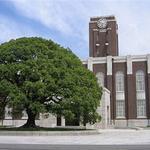
Kyoto University
-
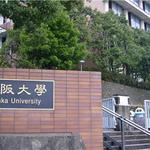
Osaka University
-
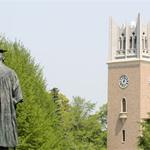
Waseda University
-

Hitotsubashi University
-

Nagoya University
-
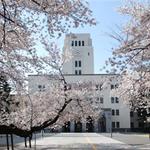
Tokyo Institute of Technology
-
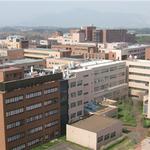
University of Tsukuba
-

Keio University
-
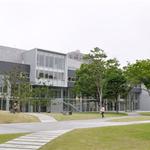
Tohoku University
-

Mesoamerican University
-

Istmo University
-

Mariano Galvez University of Guatemala
-

Regional University of Guatemala
-

Galileo University
-

Francisco Marroquín University
-

Rafael Landívar University
-

University of the Valley of Guatemala
-

University of San Carlos of Guatemala
-

Technological Institute of Tlaxcala Plateau
-

Golfo University
-

Technological University of South Sonora
-

Technological University of Huejotzingo
-

Tizimín Institute of Technology
-

Chilpancingo Institute of Technology

